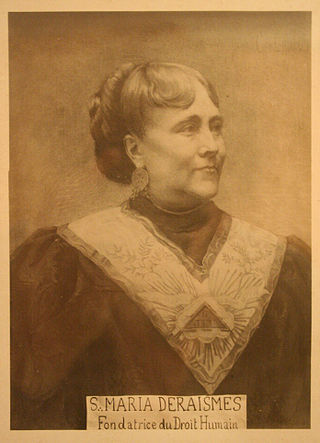
Maria Deraismes was a French author, Freemason, and major pioneering force for women's rights.

Marie Bracquemond was a French Impressionist artist. She was one of four notable women in the Impressionist movement, along with Mary Cassatt (1844-1926), Berthe Morisot (1841-1895), and Eva Gonzalès (1847-1883). Bracquemond studied drawing as a child and began showing her work at the Paris Salon when she was still an adolescent. She never underwent formal art training, but she received limited instruction from Jean-Auguste-Dominique Ingres (1780–1867) and advice from Paul Gauguin (1848–1903) which contributed to her stylistic approach.

Sarah Monod was a French Protestant philanthropist and feminist.

Madeleine Vernet was a French teacher, writer, libertarian and pacifist. She attacked abuses in the state system of foster homes, where children were often used for their labor. In 1906 she founded l'Avenir social, an orphanage for workers' children, which she ran despite government opposition until 1922, when she resigned after the board was taken over by Communists. She was a committed pacifist during World War I (1914–1918), and continued to be involved in pacifist organizations after the war.
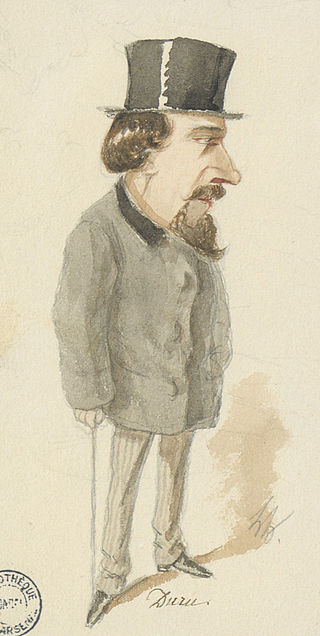
Henri Alfred Duru was a 19th-century French playwright and operetta librettist who collaborated on more than 40 librettos for the leading French composers of operetta: Hervé, Offenbach, Lecocq and Audran.
Charles Jean Marie Letourneau was a 19th-century French anthropologist.
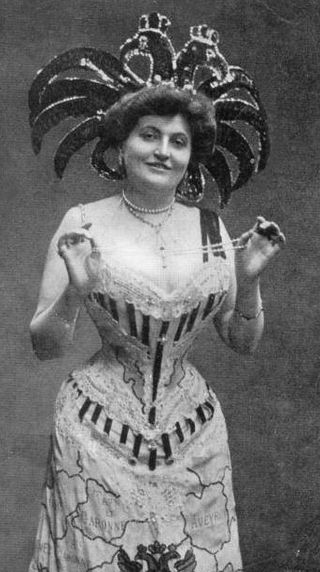
Anna Thibaud was a French singer. She had a wide repertoire, attractive stage presence and excellent voice. She performed at important venues in Paris during a lengthy career.

Thérèse Madeleine Pierre was a French Resistance fighter. She died after she was tortured by the German Gestapo.
Frédéric-Michel Toulmouche was a French composer, who specialised in light theatrical music for small theatres.

Anaïs Ségalas, born Anne Caroline Menard was a French playwright, poet and novelist. She was a member of Société La Voix des Femmes in Paris in 1848 and of other Parisian feminist organizations.

Jeanne Amen was a French painter.

Estelle de Barescut was a French painter and lithographer. She exhibited her lithographs at the Salon de Paris in 1834 and 1835, and her paintings from 1842 to 1851.
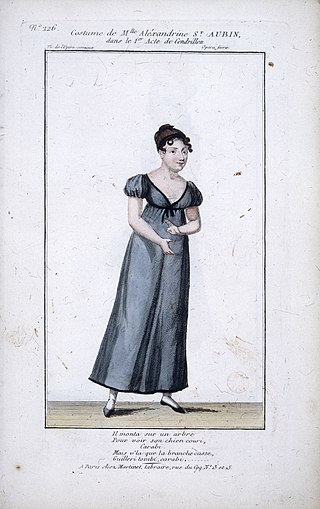
Anne-Alexandrine d'Herbez, known under the name Alexandrine Saint-Aubin,, was a French operatic soprano.
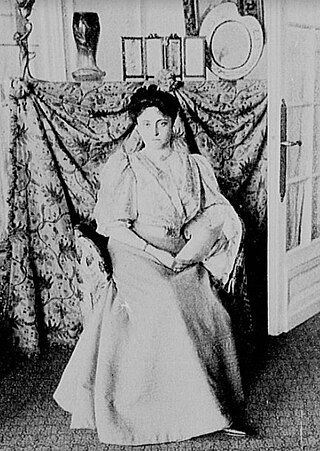
Marie Surcouf was a French balloonist and feminist. In 1906, she was the first French woman to earn an aeronautical balloon pilot's license and later that year she became the first French woman to pilot a balloon flight with an all-woman crew. Surcouf founded the women's aeronautical club La Stella and served as its president.

Anna Féresse-Deraismes was a French feminist activist for women's rights and a Freemason. She was appointed honorary president of the International Congress of Women in 1896 and 1900, and was a founding member of the first mixed-gender Masonic Order, Le Droit Humain. Maria Deraismes was her sister.
Clotilde Dissard was a French journalist and feminist. She founded the journal, La Revue feministe.
Andrée Michel was a French sociologist, feminist, anticolonialist, and antimilitarist.
Jacqueline Coutras, born in 1942, is a French geographer, CNRS researcher, and pioneer of gender geography in France.

Céleste Hardouin (1832-1904) was a school teacher who advocated for lay education for women.

Camille Berlin was a French painter.















